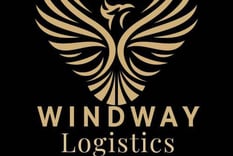Windway Logistics | Logistics and Transportation Solutions
5 Strategies to Optimize Your Supply Chain for Maximum Efficiency
Boost your supply chain efficiency with these five proven strategies. Discover tips for reducing costs, improving operations, and enhancing logistics management.
9/4/20244 min read


In today’s fast-paced business environment, optimizing your supply chain is not just a competitive advantage; it's a necessity. Efficiency in supply chain management can significantly reduce costs, improve service delivery, and enhance overall operational performance. Below are five proven strategies to help businesses streamline their supply chain processes and maximize efficiency. Reducing costs in the supply chain directly impacts overall business performance by increasing profit margins and freeing up capital for other investments. This allows companies to be more competitive in pricing, which can attract more customers. Additionally, cost savings can be reinvested into innovation and development, leading to long-term growth and sustainability.
1. Embrace technology and automation
One of the most significant advancements in supply chain management is adopting technology and automation. Implementing automation can lead to significant long-term benefits such as improved accuracy in order fulfillment, reduced labor costs, and enhanced scalability. Over time, these efficiencies can translate into higher customer satisfaction and loyalty due to faster and more reliable service. Additionally, automation allows businesses to better predict demand and manage inventory, ultimately leading to more strategic decision-making and sustained growth. Implementing advanced software solutions, such as Enterprise Resource Planning (ERP) systems and Supply Chain Management (SCM) tools, can vastly improve data accuracy and processing speed.
Key Benefits:
- Real-Time Data Analysis: Technology allows for real-time tracking of inventory and shipments, providing insights that can lead to informed decision-making.
- Reduce Human Error: Automation minimizes the likelihood of mistakes that can occur with manual processes, such as data entry.
- Increased Speed: Automated systems can handle and process orders and inventory much faster than traditional manual methods.
Investing in technology not only optimizes existing processes but also paves the way for innovative approaches to logistics and operations.
2. Foster Strong Supplier Relationships
A supply chain is only as strong as its weakest link. Building and maintaining strong relationships with suppliers is crucial to maximizing efficiency. Establishing clear communication channels and regular check-ins can help ensure that both parties are aligned and working towards common goals. Collaborative planning and forecasting can also lead to more accurate demand predictions and inventory management. Additionally, implementing joint performance metrics and incentives can motivate suppliers to consistently meet or exceed expectations, fostering a partnership that benefits both sides. Open lines of communication can lead to better collaboration, increased trust, and improved negotiation outcomes.
Key strategies:
- Regular Communication: Regularly engage with suppliers to discuss performance, delivery schedules, and any potential issues that may arise.
- Supplier Development Programs: Include training and development opportunities for suppliers, helping them to understand your needs better and encouraging improvements.
Cultivating a robust supplier partnership can lead to reliability and reduced lead times, which ultimately results in improved efficiency for the entire supply chain.
3. Implement lean inventory practices
Lean inventory management is a method that focuses on minimizing waste while maximizing productivity. By adopting lean principles, businesses can streamline their inventory processes and reduce costs. Traditional inventory management often involves maintaining higher levels of stock to avoid shortages, leading to increased holding costs and potential waste. In contrast, lean inventory practices emphasize just-in-time (JIT) inventory, where materials and products are received only as needed, reducing excess inventory and associated costs. This approach not only minimizes waste but also enhances flexibility, allowing businesses to quickly adapt to changes in demand and market conditions.
Implementation steps:
- Just-in-Time (JIT) Inventory: Implement JIT principles, ensuring that materials are received only as they are needed in the production process. This reduces excess inventory and storage costs.
- Demand Forecasting: Utilize data analytics to predict customer demand accurately. This helps in maintaining optimal inventory levels, thereby reducing both overstock and stockouts.
Applying lean practices can not only improve inventory turnover but also enhance cash flow, allowing businesses to operate more efficiently.
4. Focus on Continuous Improvement
The landscape of supply chain management is ever-evolving, and adopting a mindset of continuous improvement can yield significant benefits. This involves regularly reviewing processes, performance metrics, and employee feedback to identify areas for enhancement. Employee training is crucial in fostering a culture of continuous improvement. Well-trained employees are better equipped to identify inefficiencies and propose innovative solutions. Moreover, ongoing training ensures that staff remain up-to-date with the latest industry practices and technologies, which can significantly enhance overall productivity and effectiveness.
Key Approaches:
- Kaizen Methodology: Adopt the Kaizen approach, which emphasizes small, incremental changes that can lead to substantial improvements over time.
- Utilize Metrics and KPIs: Implement key performance indicators (KPIs) to monitor efficiency levels and set measurable goals for continuous improvement.
By fostering a culture focused on continuous improvement, businesses can adapt to changes swiftly and maintain a competitive edge in their supply chain operations.
5. Enhance Logistics Management
Logistics management plays a pivotal role in supply chain efficiency. Streamlining logistics can lead to cost reductions and faster delivery times. Streamlined logistics can significantly reduce operational costs by minimizing waste and optimizing resource utilization. Faster delivery times enhance customer satisfaction and loyalty, leading to repeat business and positive word-of-mouth. Additionally, efficient logistics management reduces the environmental impact by lowering fuel consumption and emissions, contributing to a more sustainable business model.
Strategies for improvement:
- Optimize Transportation Routes: Use routing software to determine the most efficient delivery routes, reducing fuel costs and delivery times.
- Warehousing Solutions: Consider investing in advanced warehousing solutions, such as automated storage and retrieval systems (AS/RS), to improve the efficiency of warehousing operations.
Effective logistics management not only ensures timely deliveries but also enhances customer satisfaction, contributing to the overall success of your supply chain.
Conclusion
Optimizing your supply chain for maximum efficiency is a multifaceted process that requires thoughtful strategies, strong relationships, and a commitment to continuous improvement. By embracing technology, fostering supplier relationships, implementing lean inventory practices, focusing on constant enhancement, and improving logistics management, businesses can significantly enhance their operational efficiency and reduce costs. In an increasingly competitive market, these strategies could very well be the key to long-term success in your supply chain endeavors. Continuous improvement is not a one-time effort but an ongoing process that requires dedication and adaptability. Regularly reviewing and refining your strategies ensures that your supply chain remains agile and responsive to market demands. By embedding a culture of continuous improvement, businesses can identify new opportunities for efficiency and innovation, staying ahead of competitors and meeting evolving customer expectations.
Your One-Stop Shop for Logistics Solutions.
Contact
Follow
Support@windwaycentralogistics.com
+2347069986074
© 2024. All rights reserved.
+2347042141892
+233540806857
* Badagry expressway, Alafia Bus stop, behind Oando filling station( Bencord Warehouse),Lagos, Nigeria.
* Atiku Abubakar Hall, Balogun Trade Fair market, Lagos, Nigeria
* Abossey-Okai Mortuary Road, Opposite the Central Mosque, Ghana.


